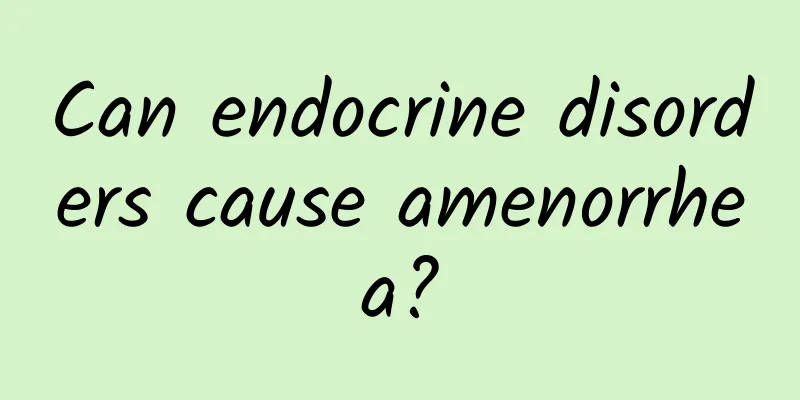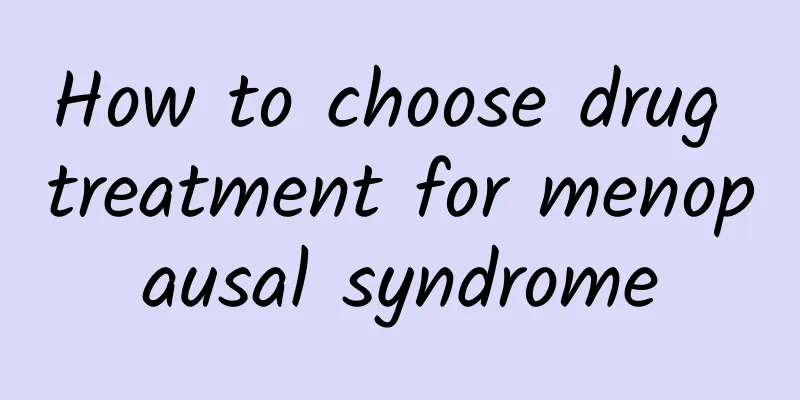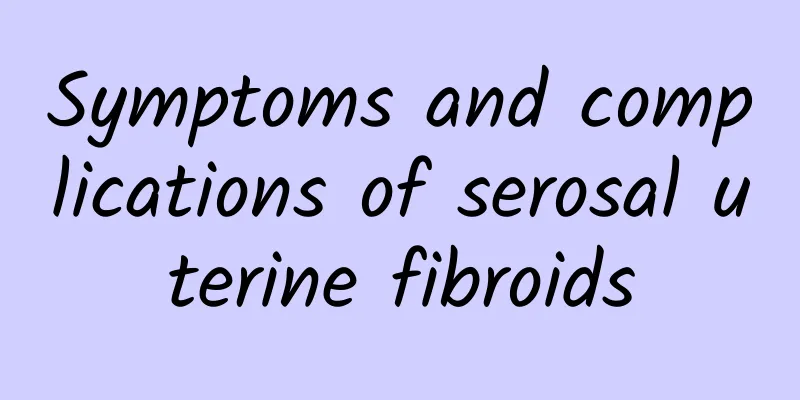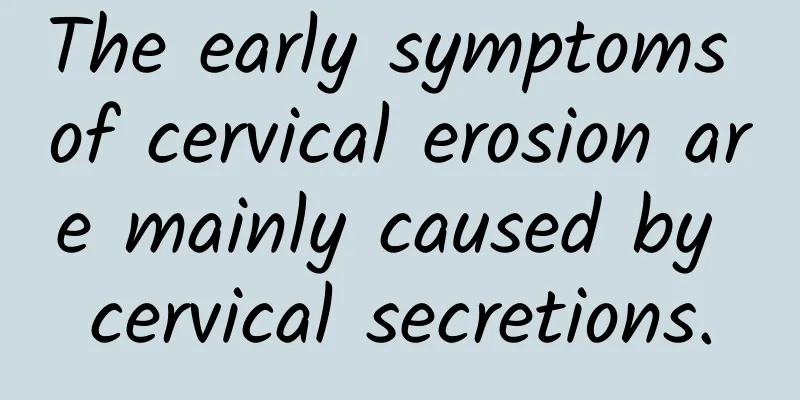Can endocrine disorders cause amenorrhea?

|
Endocrine disorders induce amenorrhea, so it is important to find the cause first and then treat it symptomatically. If it is polycystic ovary syndrome, then it is necessary to improve insulin and promote ovulation; if it is hyperthyroidism, then some anti-hyperthyroidism drugs are needed; if it is Cushing's syndrome, then surgery is usually required for treatment. In real life, due to excessive stress in life or bad living habits, many women have some adverse symptoms, such as endocrine disorders, which are very harmful to women's health. So, will endocrine disorders induce amenorrhea? Let's find out below! In addition to endocrine disorders, for most women, abnormal secretion of sex hormones is also one of the important reasons for irregular menstrual cycles. At the same time, the decline in estrogen levels can also cause patients to experience adverse symptoms such as macular pigmentation, irritability, insomnia, anxiety, and reduced menstrual flow. In addition, endocrine disorders can even cause serious consequences such as sexual dysfunction in men. |
<<: Why does my period come back half a month after it ended? Endocrine disorder
>>: What are the reasons for girls not having menstruation? First of all, it may be pregnancy
Recommend
What should patients with pelvic inflammatory disease pay attention to?
Patients with pelvic inflammatory disease need to...
How to take care of your body after childbirth?
How to take care of your body after miscarriage? ...
What are the symptoms of ovarian cysts?
What are the symptoms of ovarian cysts? Experts s...
Does medical abortion cause great harm to the uterus?
In life, there are two ways to terminate pregnanc...
How to treat chocolate cyst
There are two treatment methods for chocolate cys...
Threatened abortion care experience
Nowadays, many only children have to go to work, ...
Will cervical erosion affect pregnancy? What are the symptoms of cervical erosion?
Some patients have raised the question: If cervic...
What is the cause of yellow leucorrhea in women with cervicitis? Analysis of the causes of yellow leucorrhea in women with cervicitis
Women don’t care about yellow leucorrhea. Most wo...
What are the precautions for dietary conditioning of dysmenorrhea?
What are the precautions for dietary conditioning...
What to do about menopause diet
During menopause, you need to pay attention to so...
How can I make my menstruation clear?
You can adjust your diet and eat more light boile...
11 common vegetables to help you lose weight in spring
Spring is the best time to lose weight and detoxi...
Can Motherwort Granules help expel lochia? What should I pay attention to when taking Motherwort Granules?
For women, Yi Mu Cao Granules should be familiar ...
What cancer can uterine fibroids transform into? Can uterine fibroids transform into cancer?
Uterine fibroids are a common benign tumor in gyn...
Say goodbye to big-bellied women and girls with elephant legs! Postpartum slimming, leg slimming, buttocks lifting at one time
"After giving birth, my belly has become big...









